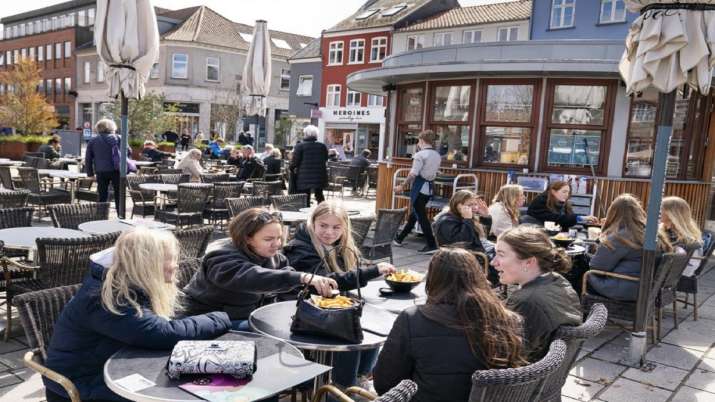
[ad_1]

Denmark lifts almost all COVID pandemic restrictions.
As Denmark reclassified Covid-19 from “socially critical” to a “generally dangerous” disease, almost all the restrictions, including the mandatory use of face masks and enforcement of the “corona pass”, have been lifted.
“Everyday life has pretty much returned to normal, but it does not mean that there is no danger,” Health Minister Magnus Heunicke told the Danish broadcaster TV2 on Friday.
However, he noted that with a high vaccination rate among the population, “we are in a good place”, reports Xinhua news agency
In the past 24 hours, Denmark’s Statens Serum Institute (SSI), the country’s infectious diseases agency, registered 557 new cases and four deaths, bringing the national totals to 351,553 infections and 2,608 fatalities.
Nevertheless, the public had mixed feelings about the disappearance of restrictions.
Normalcy returns in the wake of the government’s refusal to extend the Epidemic Act, which it passed in March 2020, and which categorised Covid-19 as “socially critical,” able to seriously disrupt important societal functions as it spreads.
“The pandemic is under control, we have record high vaccination rates. Therefore, we can drop some special rules we have had to introduce in the fight against Covid-19,” the Ministry of Health said on August 27.
Despite still being prevalent in society, coronavirus is now considered by the government to be less socially disruptive and has therefore been labelled as a “generally dangerous disease” akin to influenza.
“At the moment, I think that we have reason to favor lifting restrictions, but this does not mean that we would not go back to restrictions later on,” Jens Lundgren, professor of viral diseases at Copenhagen University Hospital, told Xinhua news agency.
“That is why an extensive surveillance activity is now being implemented in Denmark to make sure that we capture early signs of a potential worsening of the pandemic,” he said.
According to the Ministry of Health, some “minor restrictions will still apply around utilities like wastewater, entry restrictions to medical establishments and care homes as well as the requirement for facemasks at airports and onboard planes to comply with international rules”.
The Health Minister said that Denmark has placed further orders for “millions of vaccines”, including newly developed types, to tackle new variants despite the end of restrictions.
Heunicke urged people to take the vaccine to “avoid transmitting the infection to other citizens with a weakened immune system”.
On Friday, the SSI reported that 75.6 per cent of the population, or 4,428,948 people, had already started the vaccination process.
Of them, 4,282,637 people, or 73.1 per cent, are fully vaccinated.
“Covid-19 remains a lethal disease and everybody knows that. But we have a very effective weapon to control it, namely vaccination. Therefore, we need to continue to encourage the unvaccinated to get vaccinated,” Lundgren said.
The Danish Health Authority (SST) has said that 90 per cent of the population must be vaccinated against Covid-19 by October 1.
To achieve this goal, an additional 174,000 people must get the shot during September, according to the SSI.
[ad_2]
Source link